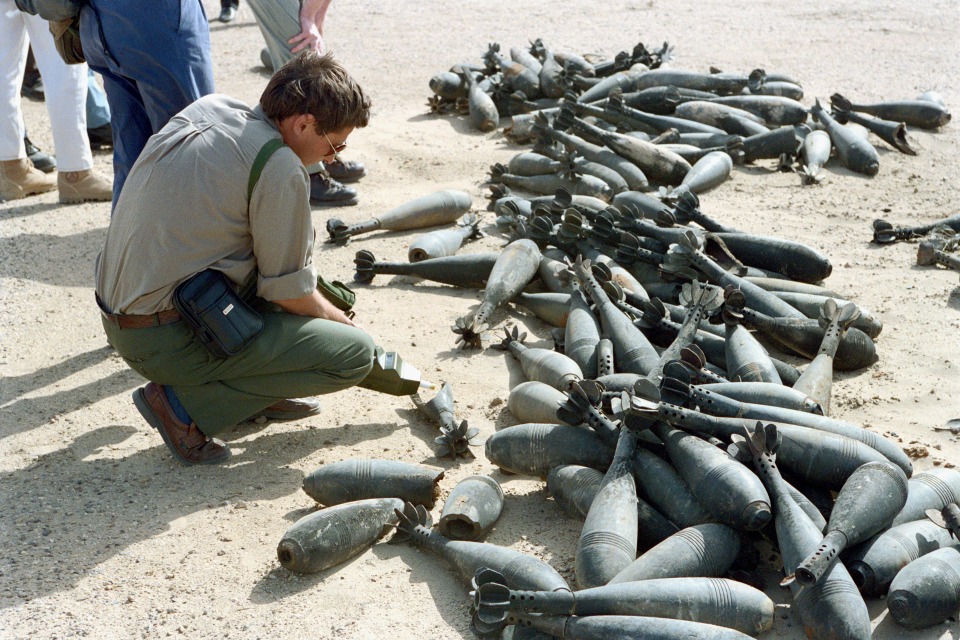"We have to take action whenever a weapon of mass destruction is used."
Statement by Ambassador Matthew Rycroft, UK Permanent Representative to the United Nations, in UN Security Council briefing on 1540 Committee.

Let me begin by welcoming you Sacha to the Council for the first time in your role as Chair of the Committee and thank you for your briefing.
I’d also like to thank Council members for their remarks today. Today you have all shown this Council’s unity and determination to prevent biological, chemical and nuclear material falling into the hands of terrorists and other non-state actors.
Sadly, on this Council we know only too well that that is no longer a hypothetical threat. The nightmare scenario has been seen in too many places. In Iraq, where we have seen worrying, persistent reports of terrorists using chemical weapons. In Syria, where the UN mandated investigation has proven that chemical weapons have been used both by Daesh and by the Asad regime. And now in Malaysia, where we were all shocked by reports that VX was used to kill Kim Jong Nam.
As these events prove, proliferation threats do not stand still, they are constantly evolving, and we must remain alert to new trends. We will have to be adaptable and nimble to keep our citizens safe.
Ensuring that states have the means and resources at their disposal to deal with these threats is the foundation of Resolution 1540. It sets out how we can make ourselves more secure; by ensuring that our legislation limits the ability to develop such weapons; by having the right controls in place to safeguard potentially hazardous material and by hardening our borders to stop their spread.
This is collective security. One state’s resilience can prevent the spread of a threat to others. But just as one state can help our collective security, so too can one state undermine it.
The current implementation rate of 1540 measures worldwide is 48%. We must continue to work towards full, universal fulfilment of these obligations.
In 2017 we should maintain the momentum and energy from the Comprehensive Review, and ensure that we effectively implement the taskings from Resolution 2325.
We should stay abreast of advances in science and technology that may increase the proliferation risk, but may also present us with opportunities to tackle the threats better. For instance, through advances in cyber, 3D printing and drones.
This Council broke new ground last year by calling on the States to adopt effective national control lists for sensitive materials – a vital step in an effective non-proliferation regime. We should work collaboratively with those who have already developed effective national control lists, and support those who are just starting out.
We should continue to offer assistance and technical support to those who need it to implement 1540 fully. Better matching of requests for assistance to those who require it should follow a more regional approach, as agreed by the Council last year.
But in truth, such preventative measures will count for little if there is continued impunity for those who use biological, chemical or nuclear material as weapons. It isn’t enough just to condemn. We have to take action whenever a weapon of mass destruction is used, and we would make sure that there are meaningful consequences for the state actors and non-state actors alike.
Last month, in response to the findings of the Joint Investigative Mechanism, I regret that a minority of Council members blocked a resolution which would have imposed measures responding to atrocities committed in Syria. We must draw on the unity we show on 1540 to find the consensus needed to act against the use of such weapons.
In conclusion, it’s clear that the 1540 Committee has a huge task ahead. And Sacha, you have the full support of the United Kingdom in making as much progress as you can.
Thank you.